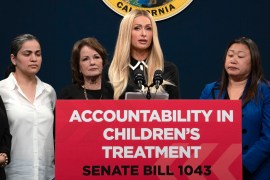Former Foreign Policy Speechwriter Urges Bush Administration to Keep AIDS ‘Front and Center’
Wednesday's reversal of the comments made by White House Chief of Staff Andrew Card regarding the closure of the Office of National AIDS Policy "may have reflected more than bureaucratic miscommunication," Tom Malinowski says in a Washington Post op-ed, as "there are other signs that the administration has not yet decided to place a high priority on the international fight against infectious disease ... the leading cause of death on the planet and a leading cause of abject poverty." Malinowski, former senior director for foreign policy speechwriting at the National Security Council in the Clinton administration, writes that President Bush's campaign platform "not only proposed no new initiatives to deal with the AIDS crisis -- it actually disparaged the previous administration's decision 'to add disease ... to an undiminished set of existing American responsibilities' in the world.'" He notes that Treasury Secretary Paul O'Neill "did not raise the plight of poor countries" in his confirmation hearing, despite his predecessors' preoccupation with the issue; Secretary of State Colin Powell's mention of the AIDS crisis in his defense before senators seemed only to be "an afterthought;" and upon entering office National Security Adviser Condoleezza Rice "eliminated only one substantive unit: the directorate dealing with international health." Malinowski points out that AIDS is spreading more rapidly in Russia "than anywhere on earth," and that China and India are both in precarious positions with the rate of disease. He says, "Imagine if the epidemic began to devastate these countries as it has devastated much of southern Africa ... [w]e could see the internal implosion of three nuclear powers. The debate about whether AIDS is a national security issue would be settled, but it would be too late to do anything but contain the damage." Malinowski adds that U.S. allies "expect that America, having put this issue at the top of the international agenda, will keep it there. They expect us to pay for our share of the burden of defeating AIDS ... If we fail to do our share, the combination of our overwhelming might and our miserliness in the face of this global calamity would invite resentment of America's power, not respect." To avoid this, Malinowski suggests that the Bush administration "recommend that the resources American devotes to the fight against infectious disease and global poverty continue to rise" in its first budget proposal; ensure that "global development issues remain front and center at the next G-7 summit ... [focusing on] building the infrastructure developing countries need to distribute drugs and vaccines safely and effectively;" and work to pass legislation that would give drug companies "a tax credit to speed the development and delivery of vaccines for malaria, tuberculosis and AIDS." Finally, Malinowski says, Bush can "put his foreign policy and economic brain trust to work on innovative solutions to the global health gap," rather than delegate the job to the U.S. Agency for International Development or nongovernment organizations that "lack the clout to push complex and costly initiatives" such as debt relief and drug affordability. Malinowski concludes, "In his inaugural address, President Bush called on America 'to show courage in a time of blessing by confronting problems instead of passing them on to future generations.' Confronting this pressing challenge would be a good place to start. It will take presidential leadership and high-level attention from his staff to ensure that we do" (Malinowski, Washington Post, 2/9).
This is part of the Morning Briefing, a summary of health policy coverage from major news organizations. Sign up for an email subscription.





